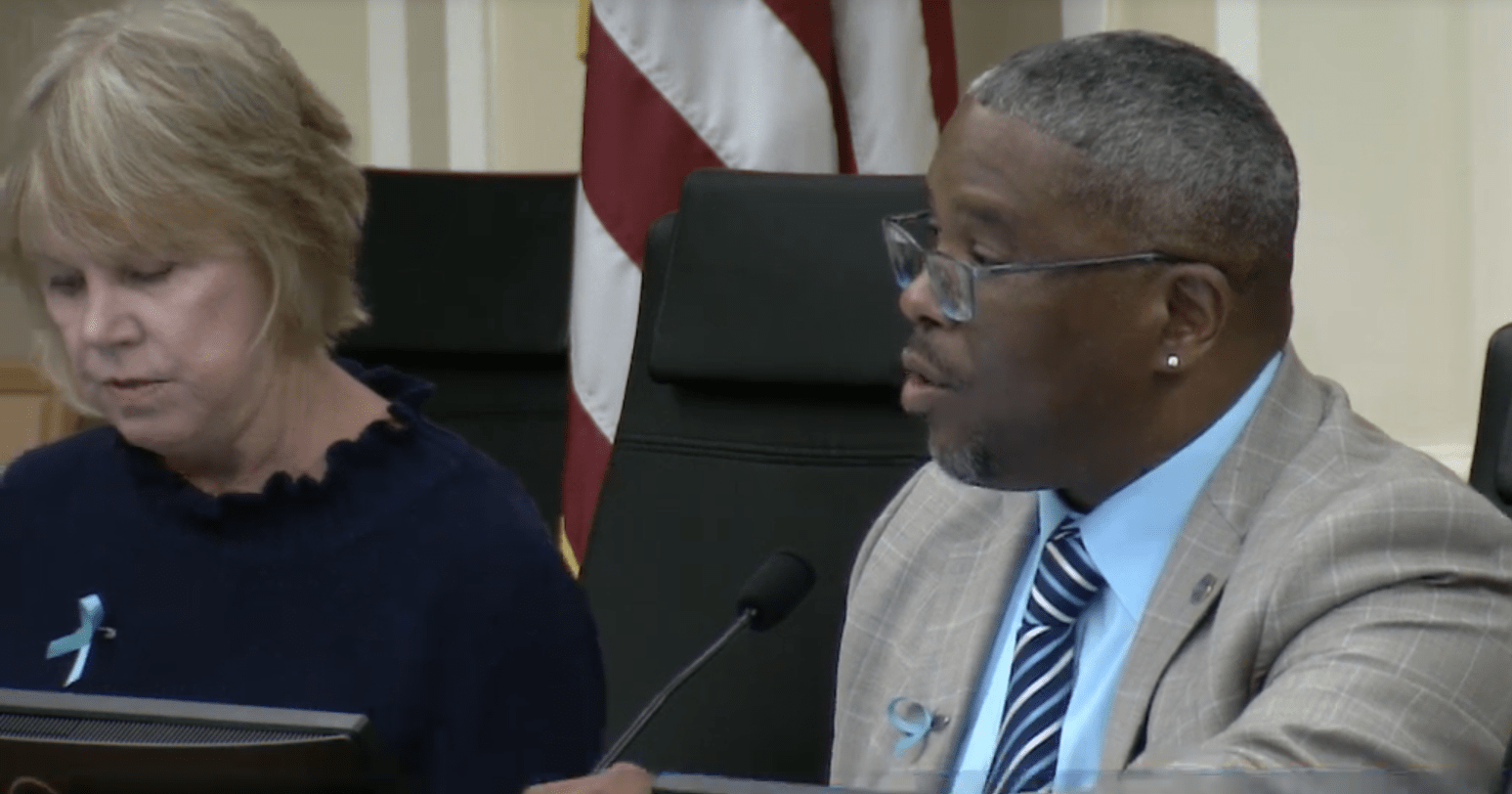Council approves soccer stadium zone change despite opposition from area residents, NAACP

Lexington, Ky. – In a closely watched decision, the Lexington-Fayette Urban County Council voted in favor of a zone change on Tuesday to allow for the potential construction of the Lexington Sporting Club’s new soccer stadium. The proposed stadium, along with a hotel, retail complex, and residential units, would be located on Athens Boonesboro Road near Interstate 75. While the approval marks a significant milestone for the professional soccer club, the exact location of the stadium is yet to be determined.
The Nicholasville Planning Commission also made a key decision on Monday regarding a potential LSC stadium, voting to change multiple zoning classifications for a property adjacent to Brannon Crossing near the Fayette County line. The commission’s recommendation for annexation of the property by the city paves the way for further development. A tax increment financing (TIF) proposal has also been submitted, outlining plans for a 5,000-seat stadium, a hotel, a restaurant and retail complex, and residential units. The Nicholasville City Commission is scheduled to vote on the zone change and annexation application in May, with state economic development officials also needing to approve the TIF proposal.

The Lexington council’s vote of 10 to 2 in favor of the zone change on Athens Boonesboro Road came after a nearly five-hour hearing. The decision followed the Urban County Planning Commission’s earlier unanimous approval of the zone change and conditional use permit for the stadium in January. The proposed location is adjacent to the Lexington Sporting Club’s youth soccer program fields, currently under construction and approved by the Board of Adjustment last September.
The Lexington Sporting Club estimates that the project will cost $40 million and generate over 300 jobs, with an estimated $16 million in salaries. Additionally, the club expects the development to attract tourism dollars to the area. City planners have recommended approval of the zone change and conditional use permit, citing job creation and economic benefits. However, opponents of the zone change have raised concerns about the club’s previous failed proposals and accused them of shopping for locations.
During the council meeting, several residents spoke against the zone change, questioning the transparency of the Lexington Sporting Club’s intentions and expressing doubts about the proposed location. Concerns were raised about the impact on traffic conditions, equitable access to the stadium, and whether the zone change could be reversed if LSC decided to build the stadium at Brannon Crossing. Supporters of the zone change argued that the development would bring economic benefits to the area and fulfill the club’s commitment to build a stadium by 2024, as per their franchise agreement with USL.
Lexington-Fayette County NAACP and Judge Julie Goodman voiced opposition to the zone change, among others. Judge Goodman, who resides near the proposed stadium location, expressed concerns about equitable access and the exclusion of marginalized communities. She criticized the lack of public transportation to the stadium and argued that it would primarily benefit affluent individuals while ignoring the needs of the less privileged. Additionally, she questioned the allocation of public funds, referring to a $1 million youth sports complex approved by the city council in 2022.
Whit Whitaker, president of the Lexington-Fayette County NAACP, supported Judge Goodman’s sentiments, emphasizing the lack of access for marginalized communities to the proposed stadium and youth soccer fields. Both the NAACP and Judge Goodman called attention to issues of transparency and accused the Lexington Sporting Club of insufficient communication with residents and potential “bait and switch” tactics.

Stephen Ruschell, a lawyer representing the developers, denied accusations of “bait and switch” and expressed their desire to have the stadium in Lexington. He acknowledged that surrounding counties, including Jessamine County, had expressed interest in hosting the club due to its difficulties finding a permanent home in Fayette County. Ruschell emphasized that the proposed location on Athens Boonesboro Road is currently underutilized and vacant, and the developers have worked with the Kentucky Transportation Cabinet to address traffic concerns.
Councilwoman Kathy Plomin, representing the rural area, voted against the zone change, highlighting the need for trust between the club and the community. Councilman Chuck Ellinger, while voting in favor, expressed concerns about transparency and urged caution. Ultimately, the majority of the council members felt that the Lexington Sporting Club had made a case for the zone change, considering previous failed attempts and the need to support development in Fayette County. District One Councilwoman Tayna Fogle was the other “no” vote.
The approval of the zone change sets the stage for the next steps in the development process, including finalizing the location and obtaining additional approvals. The Lexington Sporting Club has already gained popularity, attracting an average of 2,637 fans to its first three games at its temporary home in Georgetown.
Top photo: Council Members James Brown and Kathy Plomin at Tuesday’s hearing. (LexTV screenshot)
Recommended Posts
New senior center in Lexington will serve a dual purpose
Sat, November 16, 2024
East Kentucky Power Cooperative makes plans for both new and converted natural gas plants
Fri, November 15, 2024

Wise and Mills gain Senate GOP roles in Republican caucus elections
Fri, November 15, 2024
